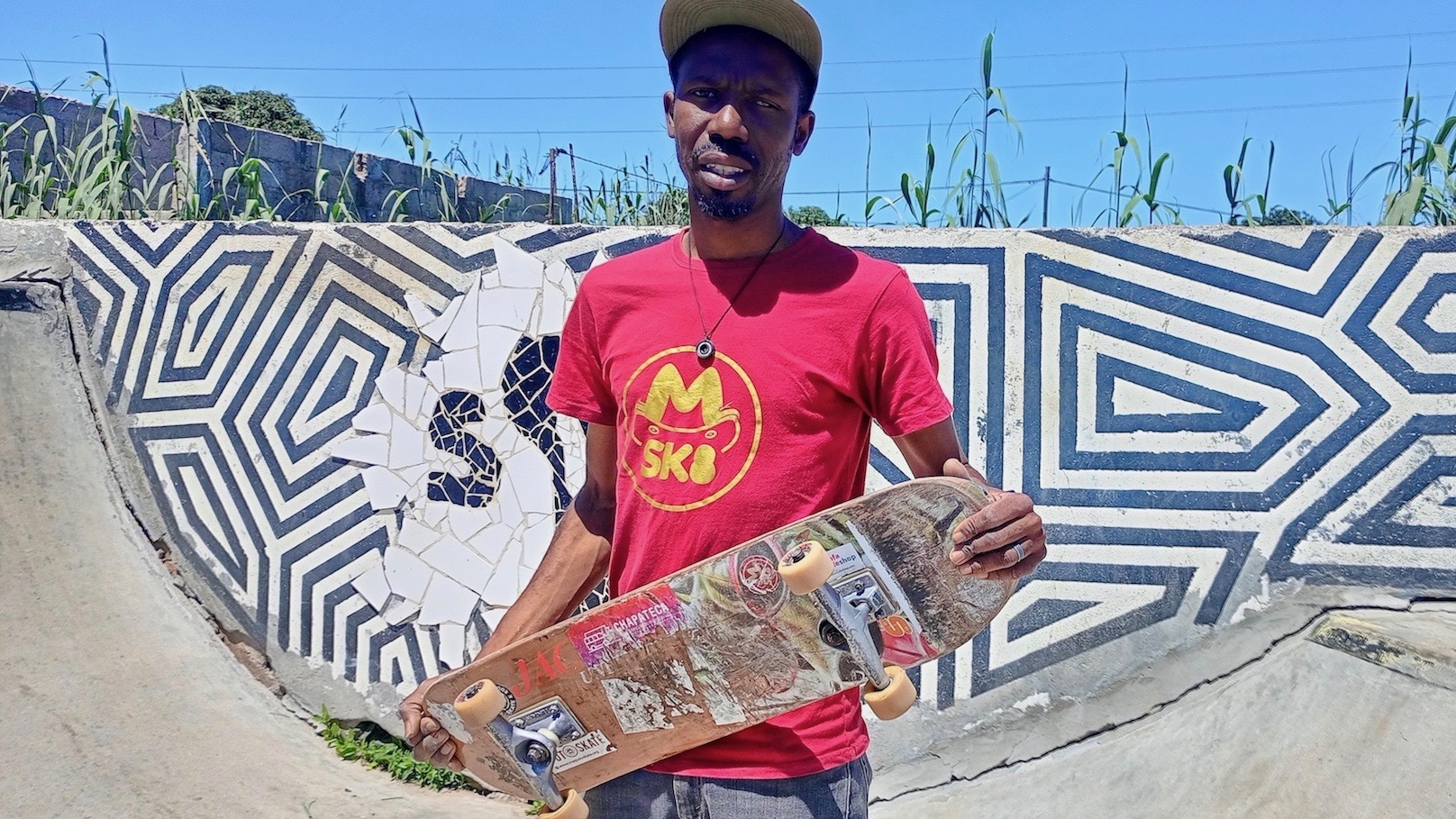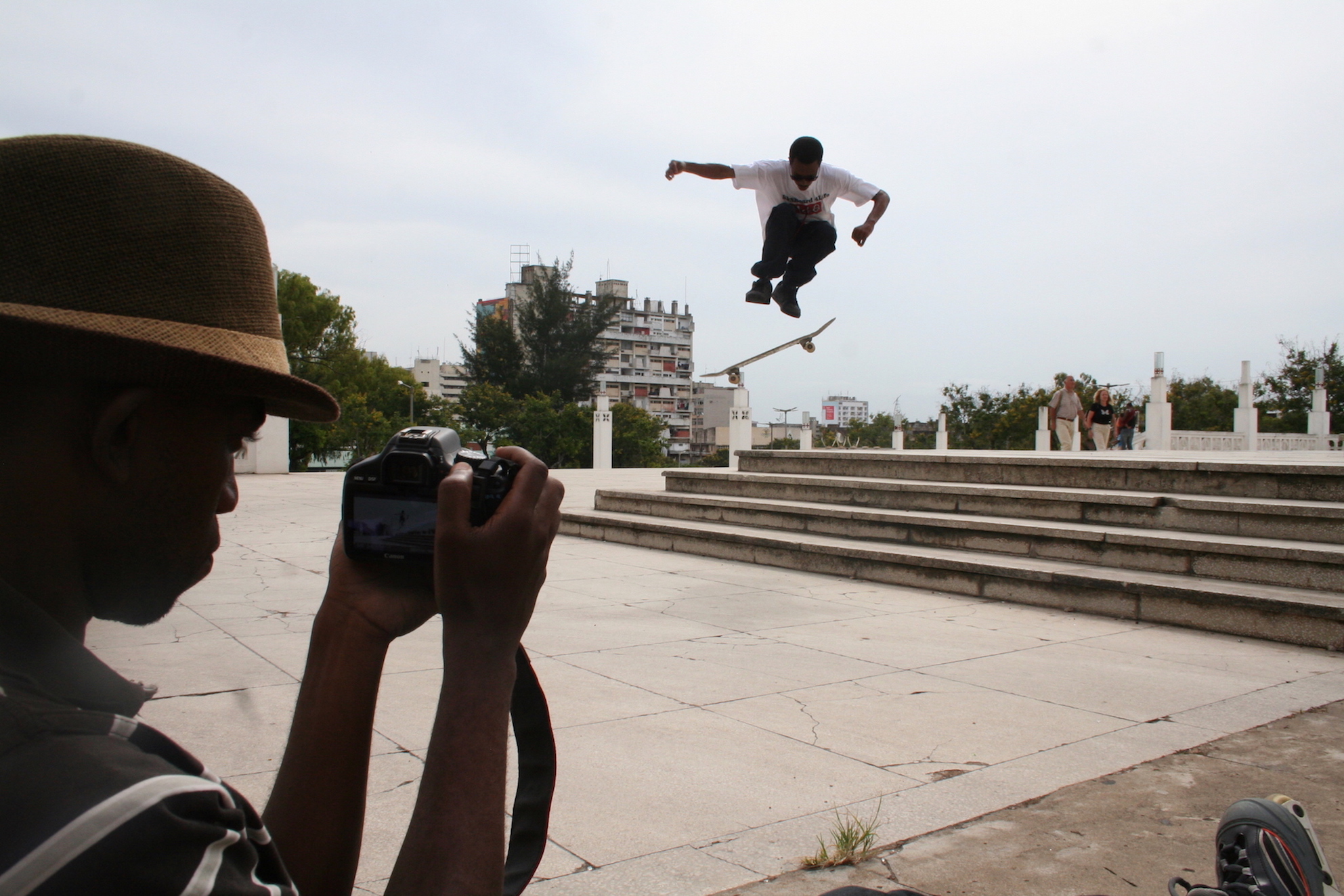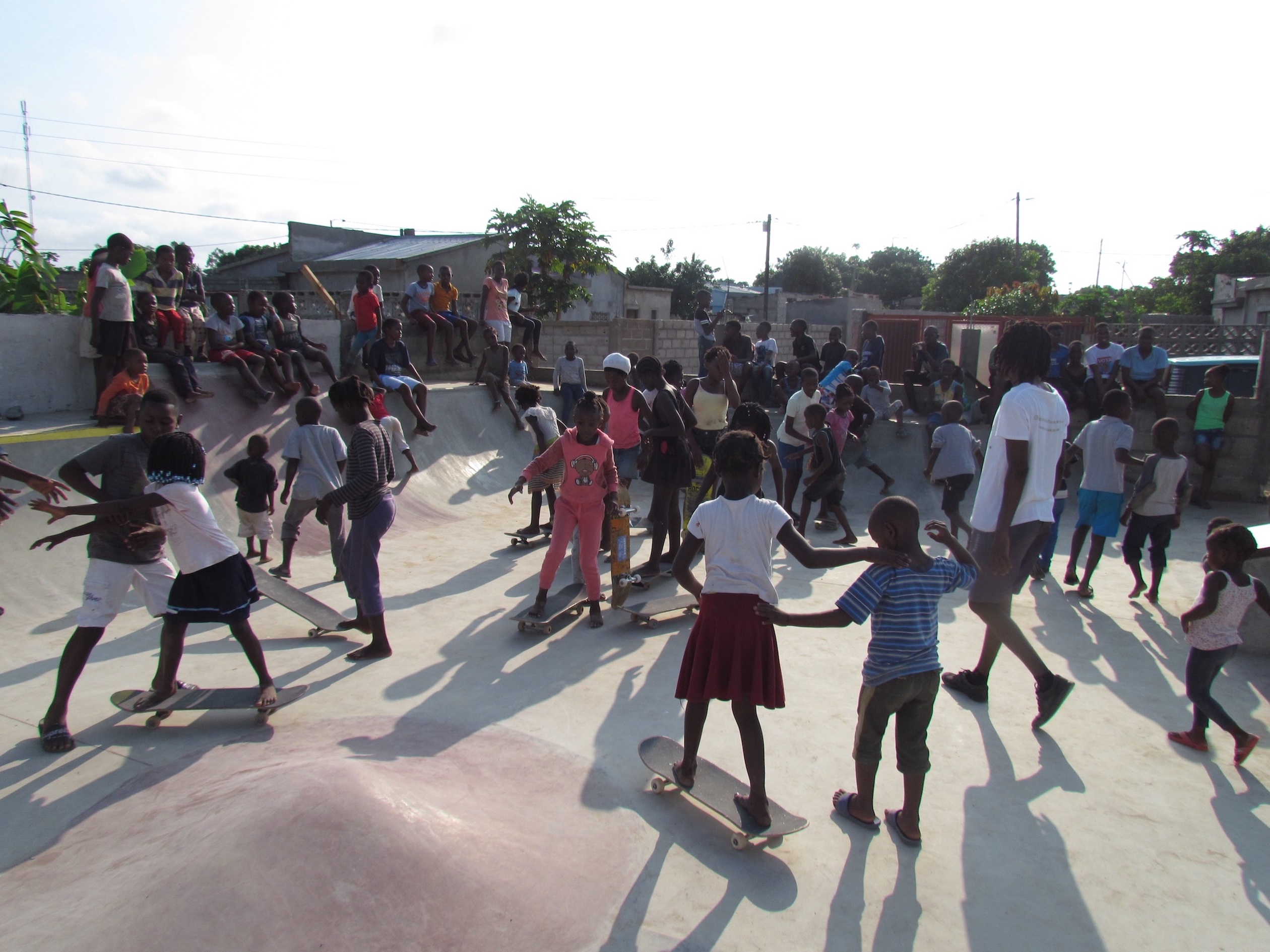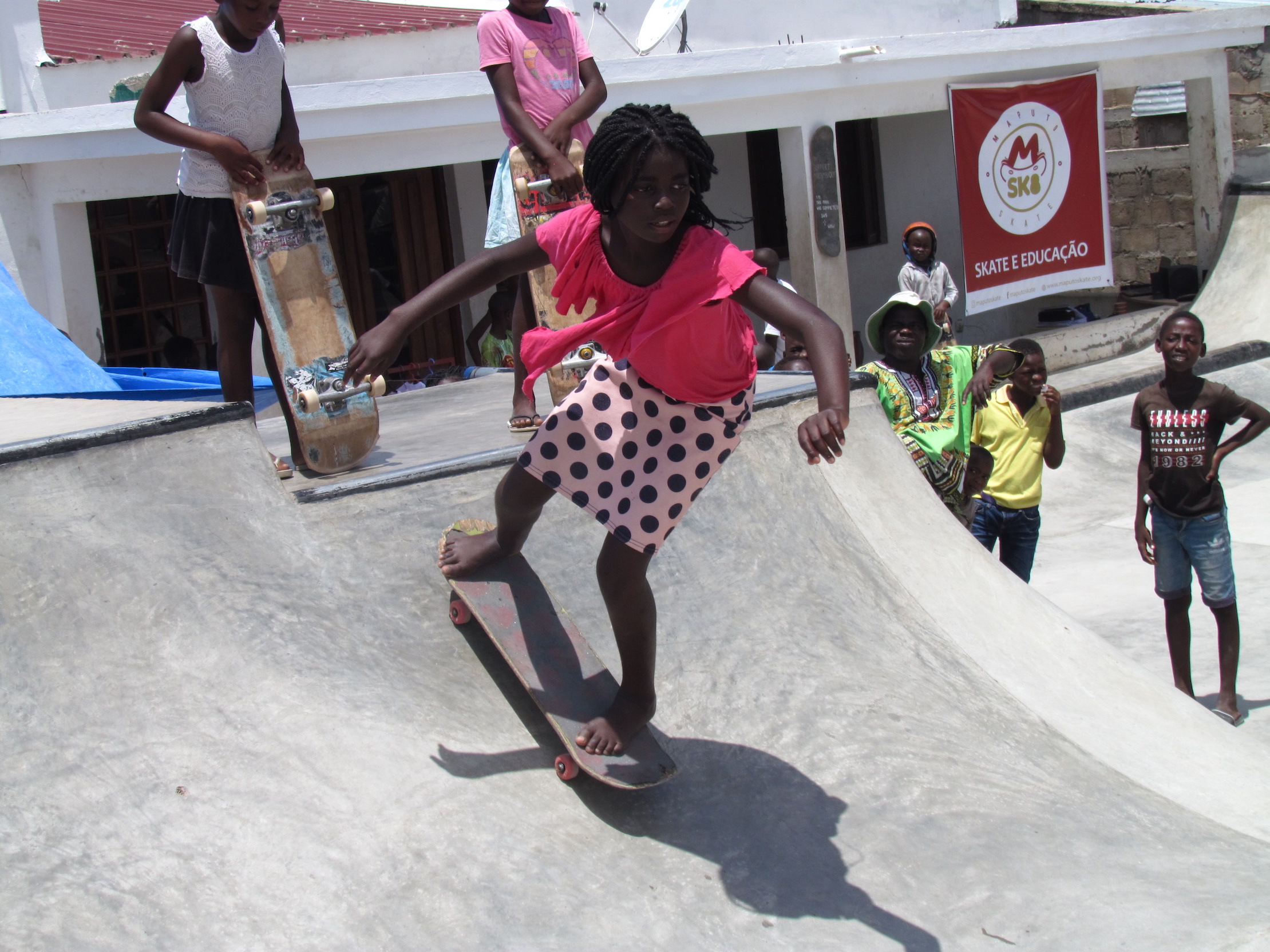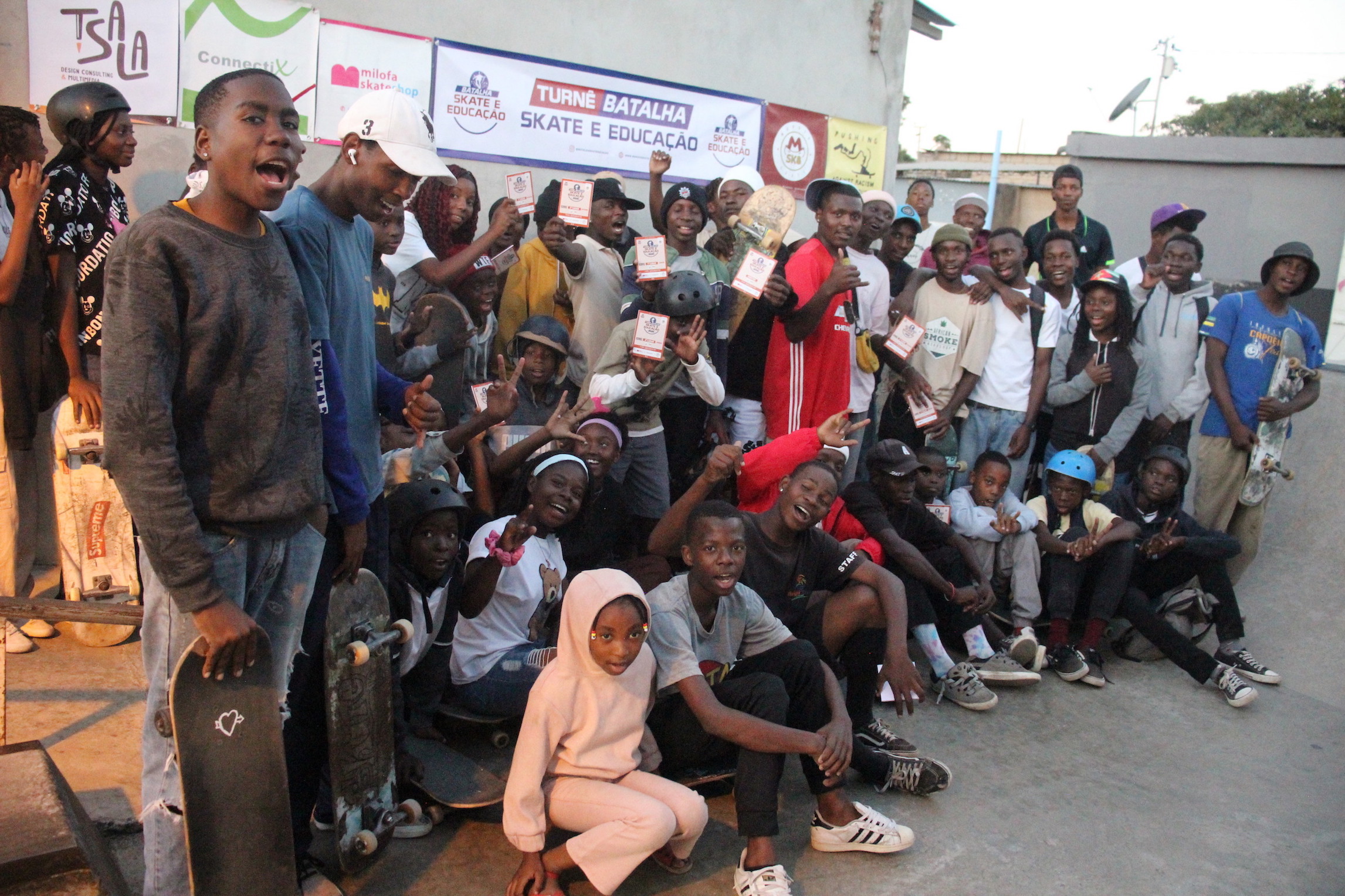Every lucky scene has an organizer. I say lucky, because without that person’s thankless background graft not much except moaning often seems to get done.
Maybe yours is that one OG who never quit, when the rest of their crew fell away due to the distractions or responsibilities of adulthood; the one who, well- skateboarding just got into their blood that bit more- and they can’t leave it alone, no matter what it costs.
In Mozambique, that person is Francisco Vinho. We first met in the United Arab Emirates, when he brought Noel Cossa to enter his first World Skateboarding Tour stop in Sharjah. It was immediately clear that he was a person of some considerable substance and one who had done much already in their lives. So it proved to be.
“But of course, with the help of the boss we prevail/
and now we're on this positive scale”
- Chubb Rock, ‘Organizer’
As well as being a member of World Skate’s International Skateboarding Judging Commission, Francisco has done great things for skateboarding in Mozambique, including- but not limited to- building sick concrete skateparks, running (many) events, educational tours, opening a skate shop- and much more, besides.
His own background in skateboarding is as innocent as it gets- borrowing a neighbour’s board until he needed to go back inside because it was late, boards shared among five people, putting up posters around town to find other skaters. He bought his own first board through money saved from tutoring in Physics, Chemistry and Mathematics, and today his name rings out across the skateboarding scenes of continental Africa.
All this barely skims the surface of a life well lived; as I say, we are all collectively lucky to have him involved in skateboarding as much as he is.
As he drily notes: “I became an entrepreneur partly because I didn’t want to explain my bruises at a regular job.”
Let’s meet the Organizer himself: Mozambique’s main man, Francisco Vinho.
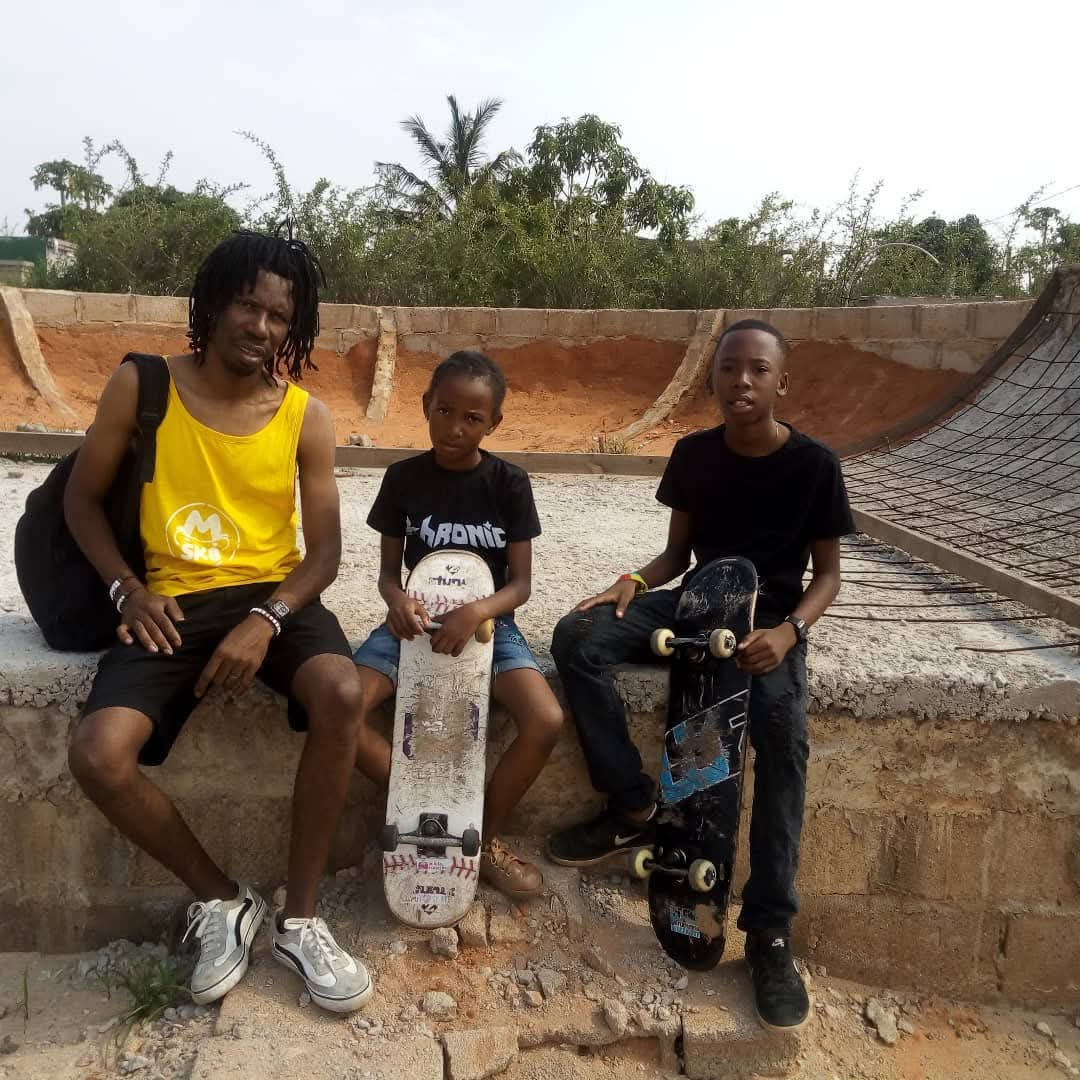
Hi Francisco- can you introduce yourself for us, please?
My name is Francisco Luís Vinho, I am Mozambican- a skateboarder for over twenty years, an entrepreneur, and a social educator.
I’m the founder of Maputo Skate and Education, an initiative that uses skateboarding as a tool for youth empowerment and social transformation.
I hold a degree in Computer Science and have additional training in skateboarding and sports-related fields. In addition to being an IT technician, I’m also a life coach and social activist.
Skateboarding is my passion and my way of life; I use it as a powerful tool for social change, with a mission to inspire, educate, and create opportunities for young people in Mozambique, and across Africa.
You are better positioned than most to tell us about some of the different skate scenes across Africa. Which scenes are the strongest, in your opinion?
In my opinion, South Africa has the strongest skateboarding scene in Africa, because you can find skaters and proper facilities in many cities across the country. In other countries like Uganda, Zambia, Mozambique, Ethiopia, Angola, and others, the skate scenes are much smaller- usually limited to one or two provinces- with few regular competitions and a lack of proper infrastructure.
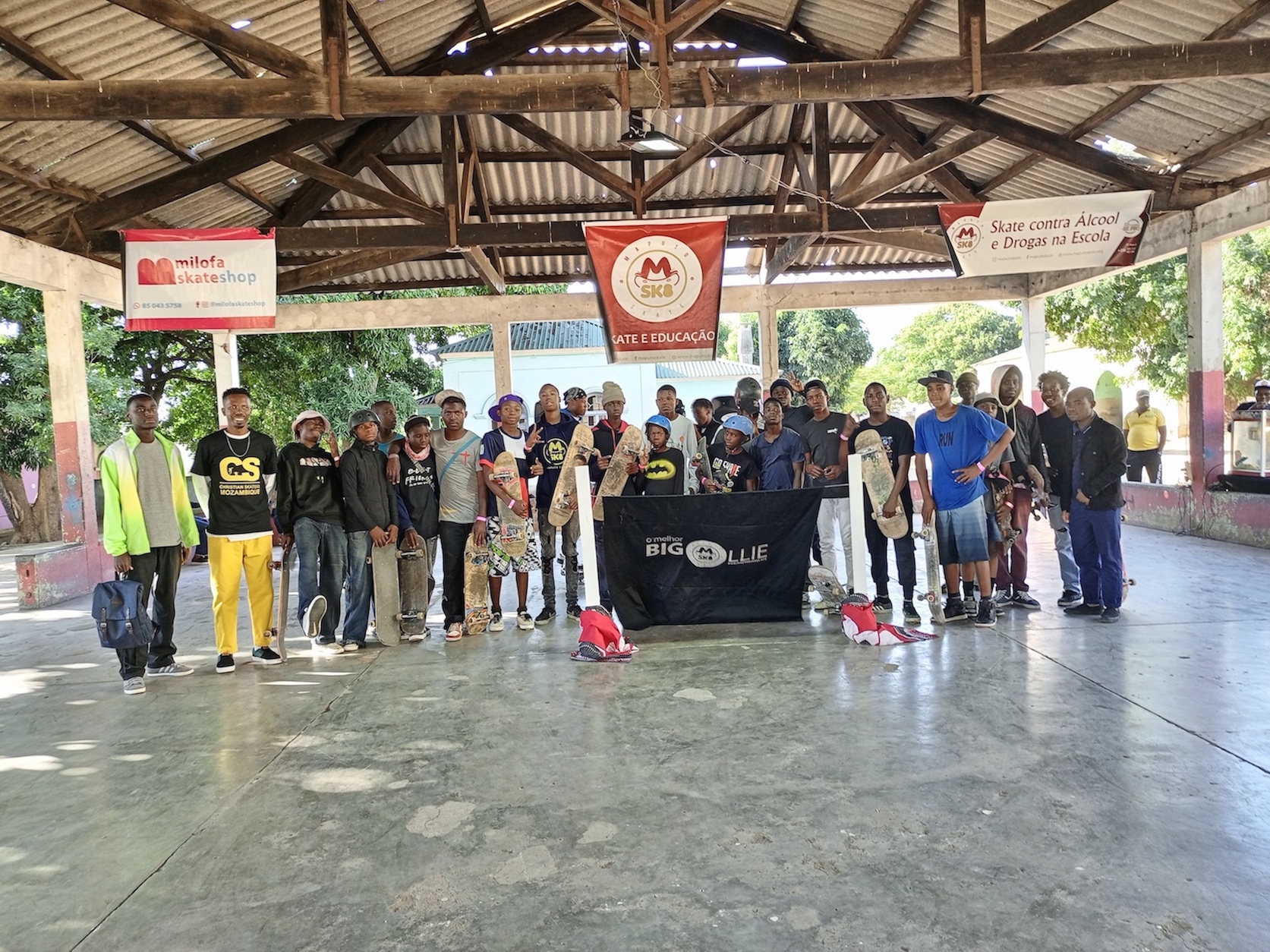
Can you give us a little context about your own role in skateboarding up to now?
I have over twenty years of deep involvement in skateboarding. I started as a skater and grew into multiple roles within the Mozambican and African skate scenes. I began as a skater, coach, judge, and organizer of local skate tournaments. I have experience building skate parks and mobile ramps- at my own home, I built Mozambique’s first DIY concrete skate park, where I run Maputo Skate’s programs.
A few months ago, I served as Director of Skateboarding at the Mozambican Skating Federation, responsible for all skateboarding-related matters. I’m currently a member of the International Skateboard Judging Commission at World Skate. Achieving this goal fills me with pride, and I hope it inspires others to never give up on their dreams. My mission remains to develop skate culture in Mozambique, create opportunities for young skaters, and connect skateboarding with education, entrepreneurship, and social impact.
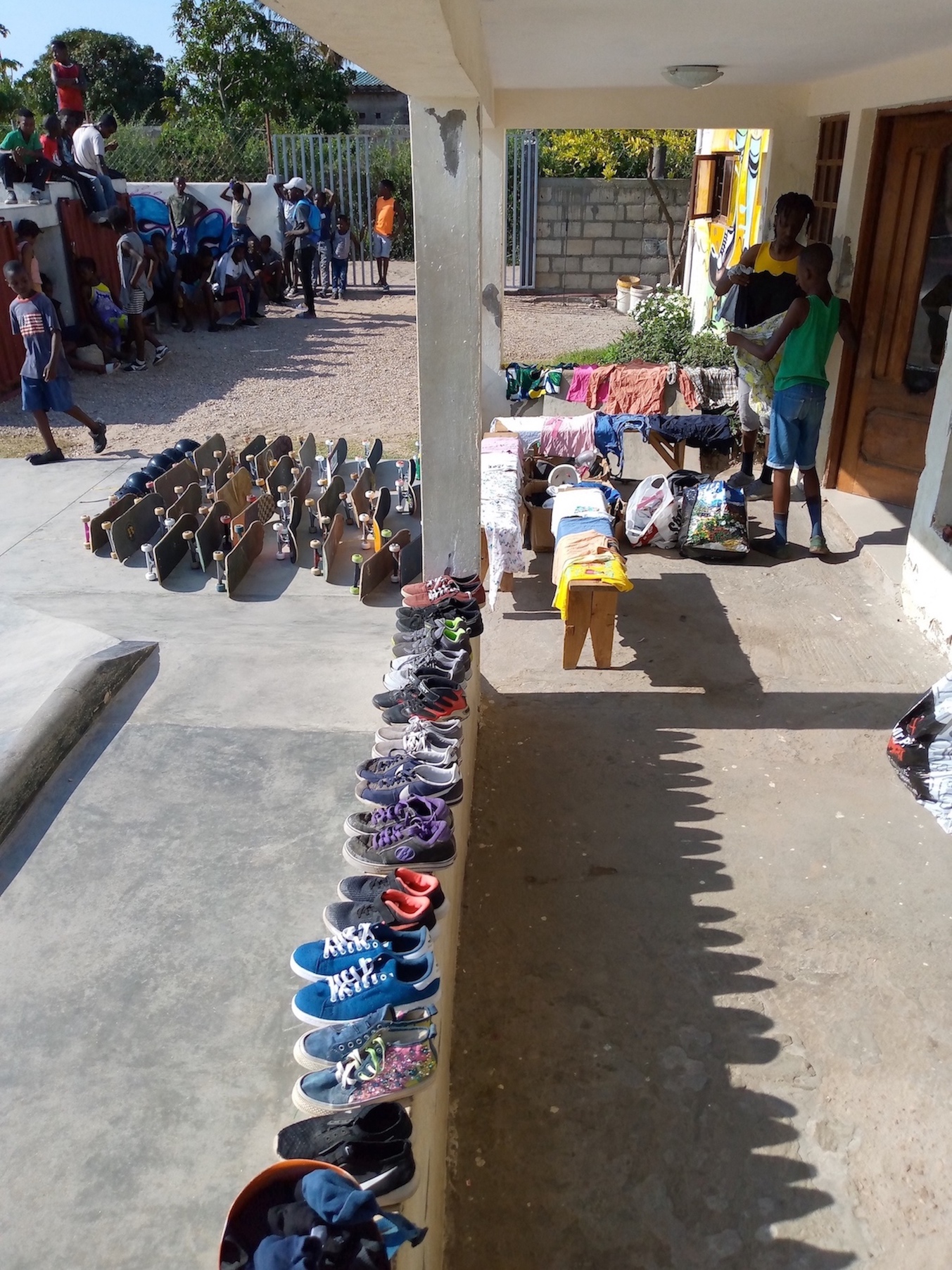
You mentioned Maputo Skate, what can you tell us, there?
Maputo Skate exists to keep the skateboarding flame burning strong at all times. It’s a platform focused on developing the skateboarding industry in Mozambique. As a skater, I’m doing my best to offer what I didn’t have when I started skateboarding back in 2000- a lack of support that sadly led many talented skaters to give up.
Today, I run a professional skate shop Milofa Skate Shop, Luís Vinho Skatepark, a social project called Maputo Skate, and I organize skateboarding contests through Batalha Skate e Educação.
Maputo Skate guarantees the bare minimum to keep skateboarding alive- but it has taken a lot of personal time and effort.
If we could receive regular donations of skate equipment, shoes, and access to international- standard facilities, Mozambique could develop many more great skaters.
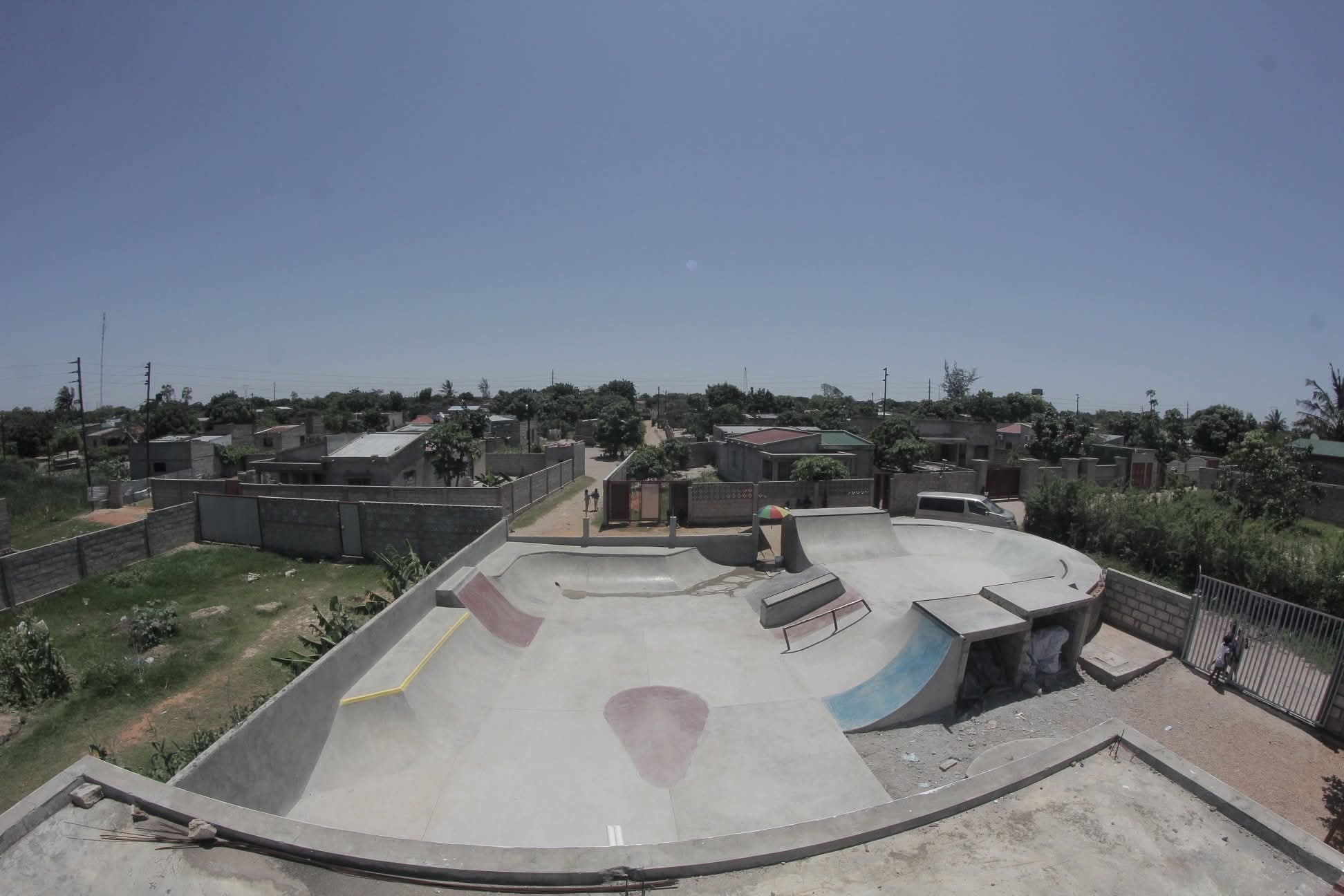
Speaking to the Ugandans and Zambians, it seems that everyone agrees that once Africa gets an international-level facility, the doors will open wide and talent will pour out. What are your thoughts?
I completely agree- but not only international-level facilities. We also need access to proper equipment and experienced coaches with a skateboarding background. Equally important, is strong communication between the skater community and national federations. That’s often missing.
Would a continental-level contest series be part of the answer?
Definitely. Competitions are what push skaters to level up- they bring motivation, structure, and recognition.
Does skateboarding being in the Olympic Games change attitudes toward it, in your experience?
For most African countries, not really. The number of skaters didn’t increase much. It’s still the same core community.
What has changed is that now National Federations and other sports organizations recognize skateboarding as part of their disciplines- and they realize they need to do something about it.
What knowledge or insight would you like to share with our community reading this?
In my opinion, the main barrier holding back the development of skateboarding in Africa is that it’s often managed by people who have no background in skateboarding. They don’t understand the culture.
One of the core values of skateboarding is community. Skaters learn from each other- sharing trick tips, lending hardware or shoes, cleaning spots, filming, building ramps. These small acts create a strong, supportive community. You’ll always see skaters pushing each other forward.
That spirit must guide the future of skateboarding in Africa.
